A visitor’s guide to ethical elephant sanctuaries in Thailand
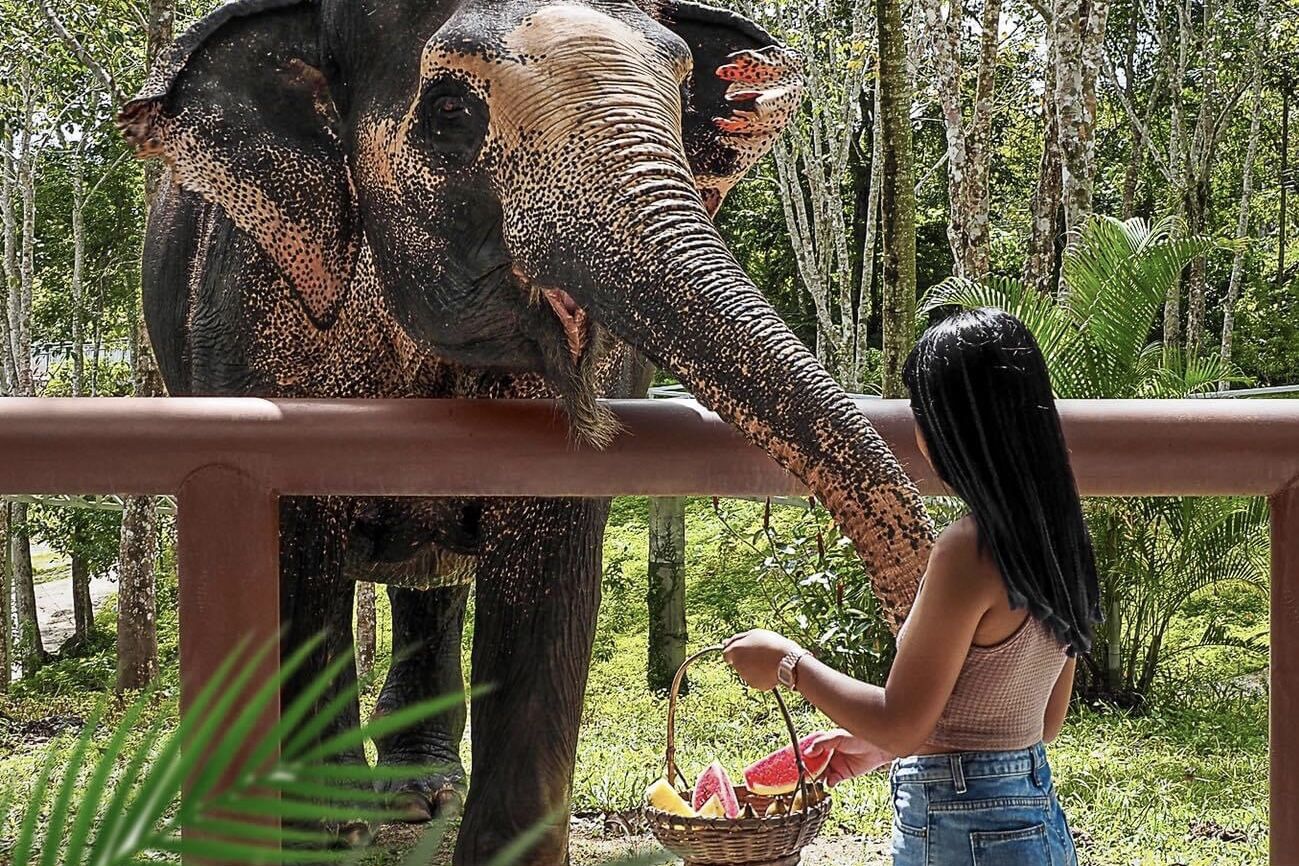
If you are a tourist, a trip to Thailand is incomplete without seeing the country’s extraordinary elephants. These majestic animals have been an integral part of Thailand’s culture and history, used for a variety of purposes such as for transportation, war, logging (in the timber industry), and now tourism. Currently, there are around 3,500 – 4,000 captive elephants in Thailand. Wild elephant numbers range from 3,000 – 3,700, with declining population numbers every year.
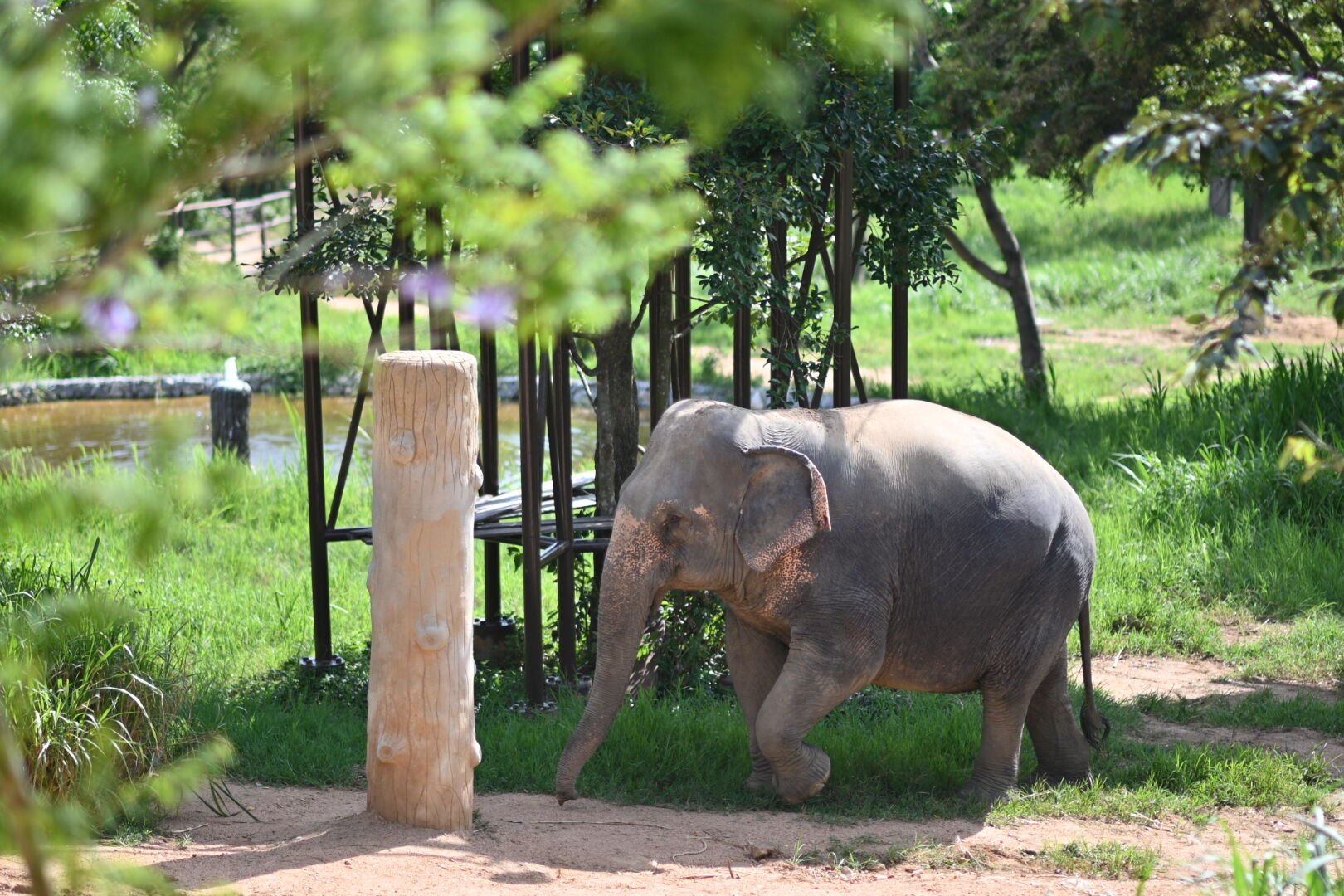
In recent times, global awareness regarding animal abuse has increased and many have expressed concerns regarding elephant treatment in the tourism industry. Therefore, in Thailand, an increasing number of individuals are seeking to visit elephant sanctuaries that promote ethical practices.
Instances of elephant abuse
Whilst elephants have been Thailand’s national animal, symbol, and pride, there have been many instances of abuse of these precious animals. You may have seen instances regarding the horrific treatment of elephants circulating around the internet, such as the one below:
Sensitive content warning
From a young age, humans gain control of elephants through “crushing” or “breaking-in” using inhumane methods such as tying elephants down with ropes and chains, whipping them, poking them with bull-hooks, and stabbing them with nails. This is to force the elephants to do various tourist activities such as painting with their trunks and performing circus tricks, all of which are very unnatural.
However, trends are changing as COVID-19 has led to positive developments in the elephant tourism industry; elephant entertainment venues were forced to close down due to the lack of tourists. Due to the high costs of taking care of the elephants, many were given away to sanctuaries as owners could no longer manage covering daily expenses.
What are ethical sanctuaries?
Prior to delving into the methods of choosing an ethical sanctuary, it’s key to pinpoint what the term “ethical” represents. In this context, ethical sanctuaries offer a home for animals without taking advantage and harming them. These types of shelters dedicate their efforts to conservation tasks, rescue missions, and rehabilitation plans. They strictly avoid employing elephants for visitor amusement, rides, or any other activities considered to be manipulative.
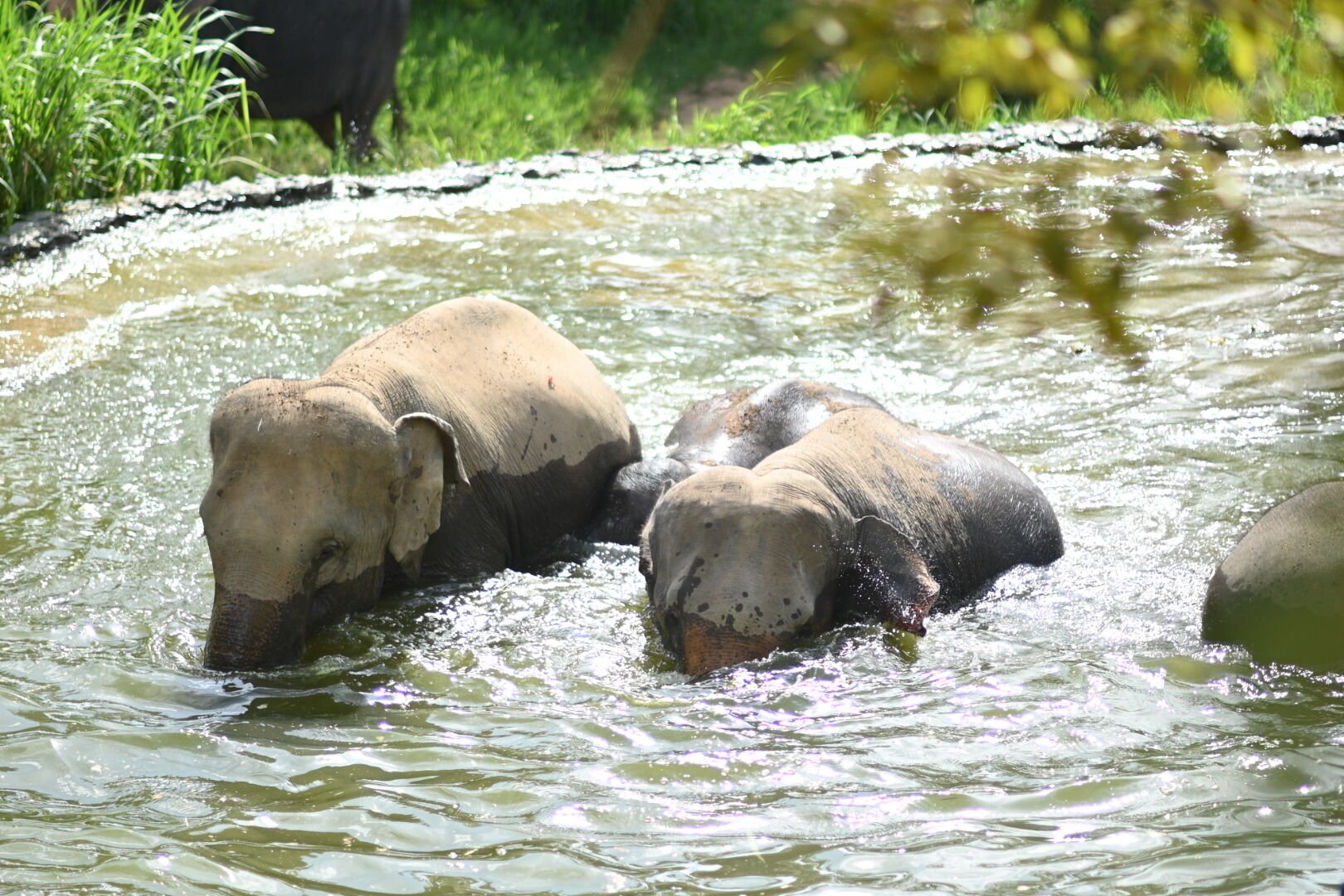
The key element to focus on is ensuring your experiences do not compromise the welfare of the elephants. To help identify animal welfare, World Animal Protection identified 5 domains to help do so: nutrition, environment, health, behaviour, and mental state.
- Nutrition: Does the animal have sufficient access to food and water?
- Environment: How is the living environment of the animals?
- Health: Are the animals able to exercise and maintain good health?
- Behaviour: Are the animals able to able to exhibit natural behaviours and interact with one another like in the wild?
- Mental state: Do the animals benefit from predominantly positive mental states?
How can you choose ethical elephant sanctuaries in Thailand?
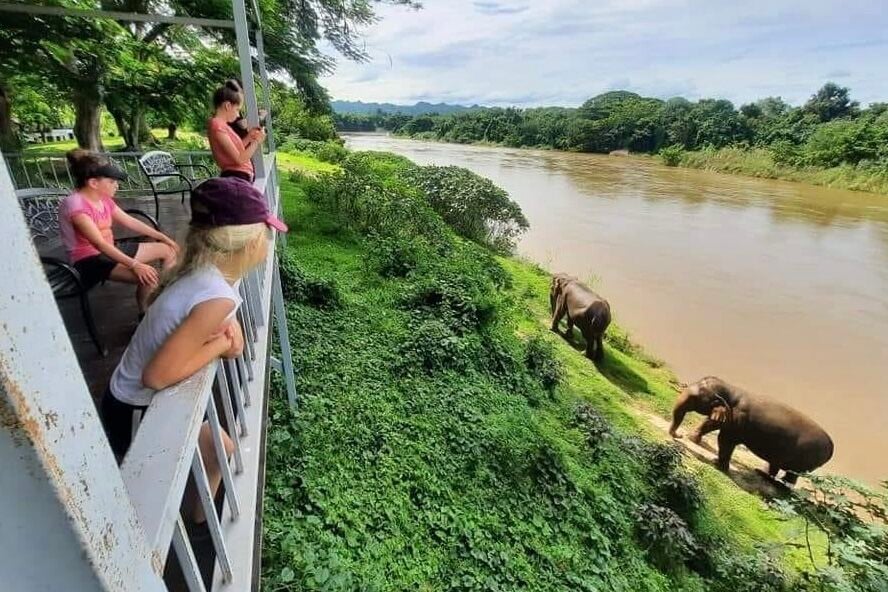
1) Thorough research
Prior to booking a visit, it’s important to conduct some online research about the elephant sanctuary you are planning to visit in Thailand. Confirm whether it’s associated with any conservation initiatives, and look up feedback or ratings from past visitors. Be careful of sanctuaries that promote elephant shows and ride experiences.
2) Look for transparency
Sanctuaries that operate under ethical standards will be open about their procedures. They will disclose the origins of the elephants, strategies for their care, and herding methods.
3) Interaction policies
Ethical elephant sanctuaries often place restrictions on human-elephant interactions. They prohibit activities such as elephant rides and staged shows that can significantly distress the elephants. Rather, guests may be given the opportunity to assist caretakers in feeding these majestic creatures or watch them from a safe distance.
4) Presence of qualified veterinarians
Check whether the sanctuary employs qualified veterinarians who take care of the elephants’ health. Regular health check-ups should be part of the program.
5) Eye on living conditions
Ensure that the elephants have access to a natural environment with the freedom to wander, immerse themselves in water, feed on vegetation, and interact with their fellow species. Do they try to replicate an actual elephant habitat? Are the elephants chained up and is their mobility limited?
Ethical elephant sanctuaries in Thailand
Numerous verified, ethical elephant sanctuaries exist across Thailand – there is so much to explore. Even though this list will focus on five, there are a plethora of options, so make sure to do your own research (and make your own judgement) as well.
1) Burm and Emily’s Elephant Sanctuary (near Chiang Mai)
Founded in 2011, Burm and Emily’s Elephant Sanctuary (BEES) in Thailand is a community-based initiative dedicated to the rescue and rehabilitation of elephants from harsh conditions. BEES, home to various animals including dogs, cats, cows and elephants, promotes ethical eco-tourism and sustainable development through local employment and community projects. The sanctuary advocates for a world where animals live without fear, urging responsible travel. Quoting from their website: “BEES are a place where humans now work for them (the animals).”
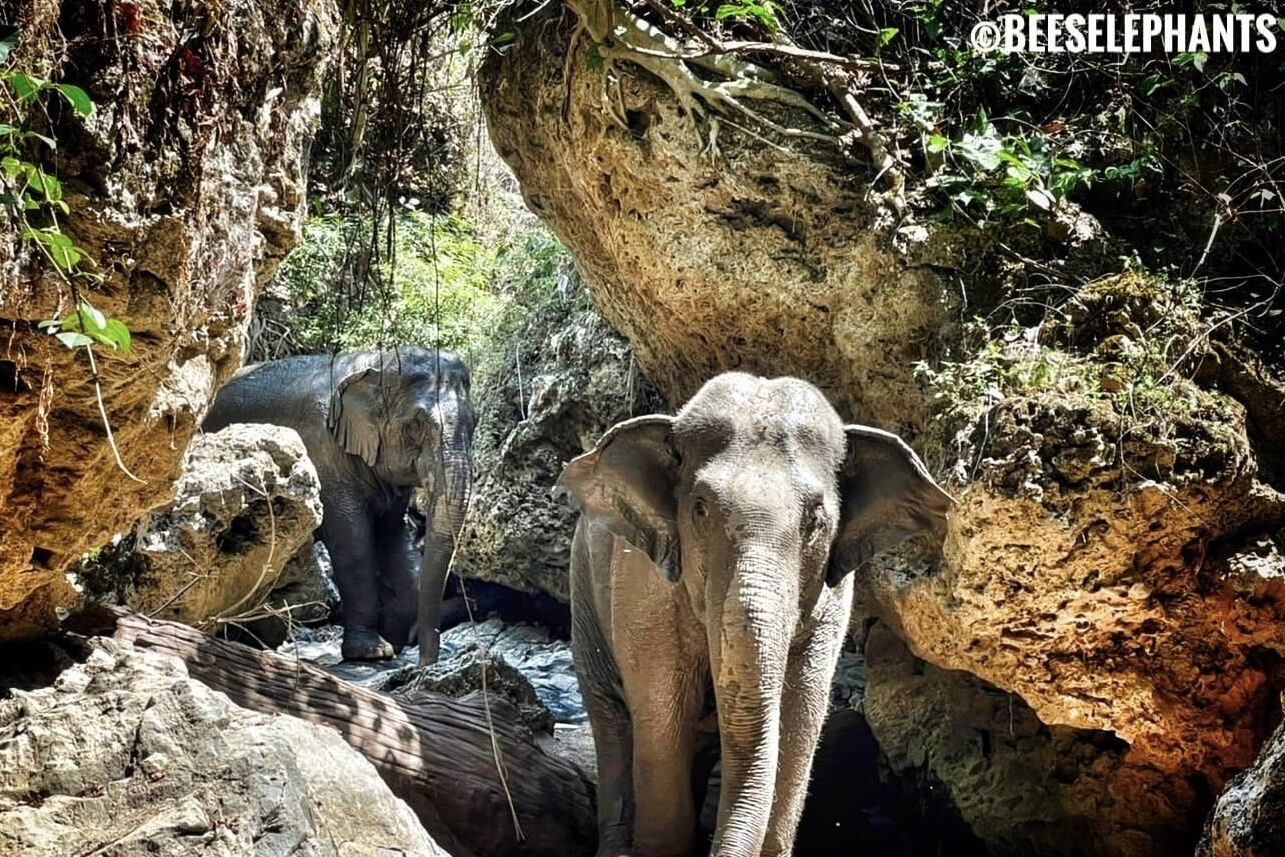
Location: 34 หมู่ 1, Tambon Chang Keung, Mae Chaem District, Chiang Mai 50270
2) Somboon Legacy Foundation (Kanchanaburi)
The Somboon Legacy Foundation is an elephant sanctuary founded in 2019, which is focused on creating an environment where elephants can live freely and naturally. Adopting a hands-off approach, this allows the elephants to exist in their natural social groups. Their primary aim is not only rescue and protect elephants, but also to provide education about ethical elephant tourism in their interactive elephant museum.
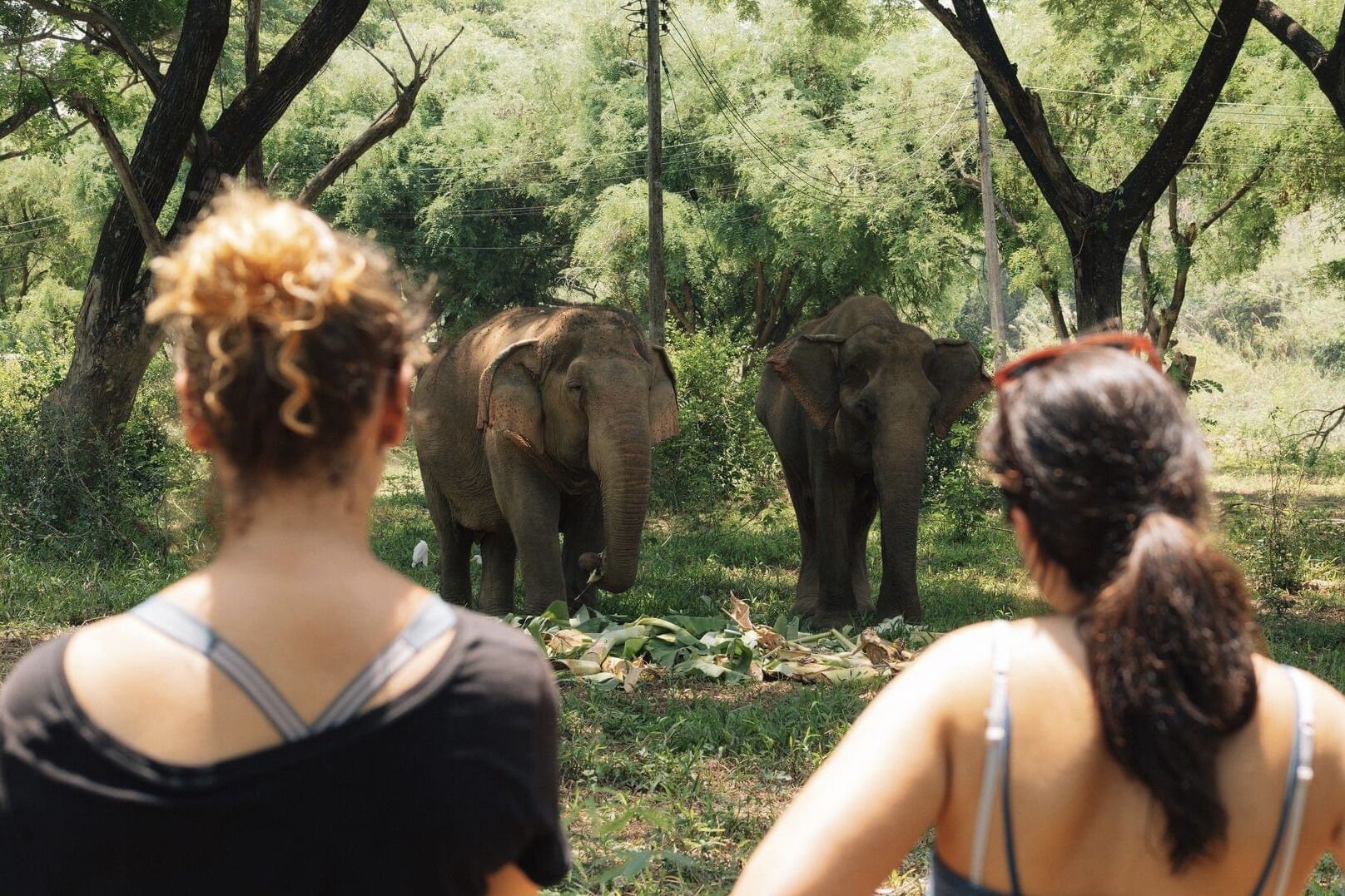
Location: 129, Klon Do, Danmakamtia, Kanchanaburi 71260
3) Samui Elephant Kingdom
Prioritising the welfare of its elephants, the sanctuary of Samui Elephant Kingdom offers unique experiences for its patrons, such as having workshops to make and feed high-nutrition power balls to the elephants. Strong guidelines have been established in the sanctuary, like the deterrent of loud noises, to maintain a stress-free atmosphere for the elephants. Above all, the kingdom adopts a combination of compassion and positive reinforcement for elephant care and upholds the globally accepted ‘5 Freedoms for Animals’.
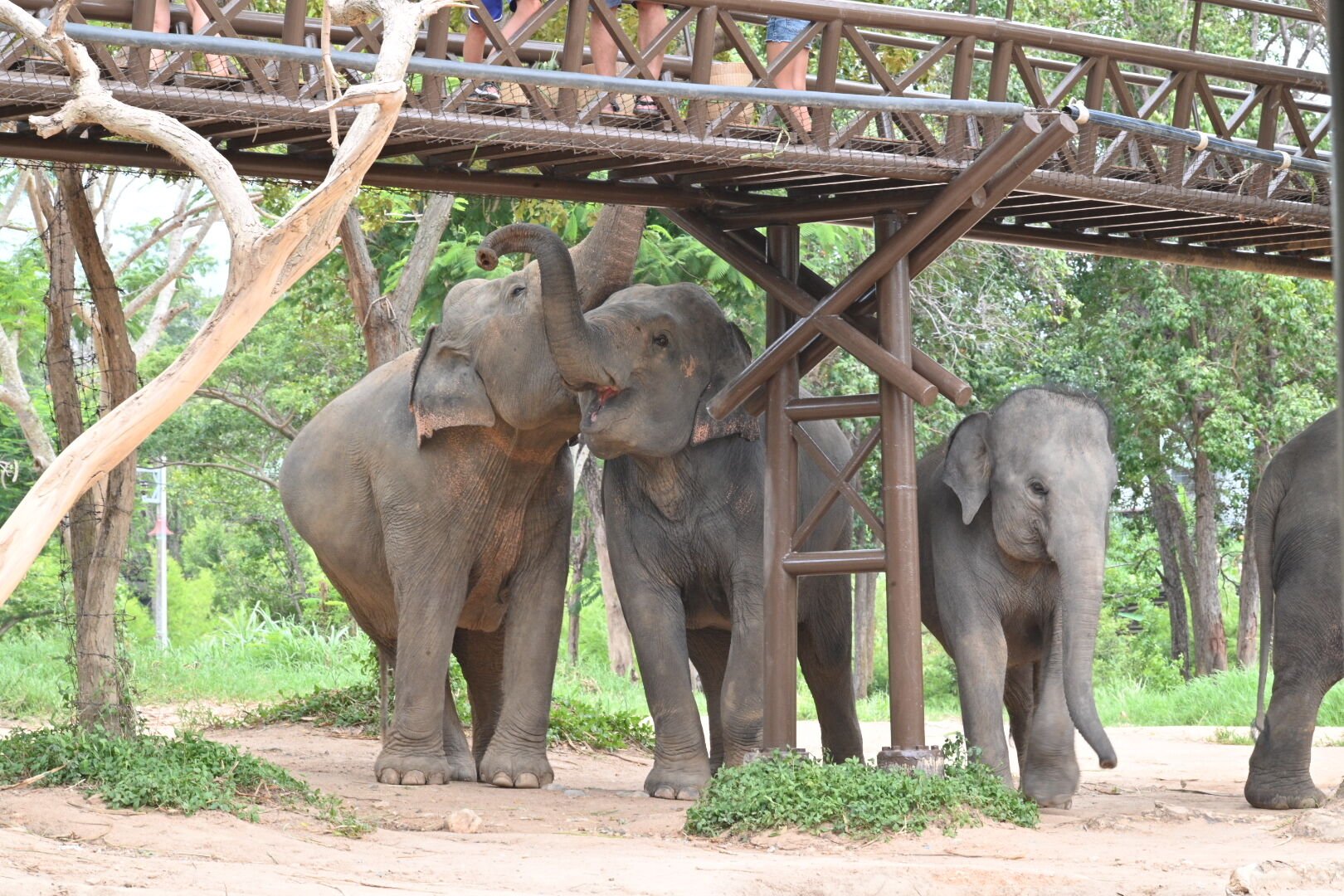
Location: 25/11 Moo 2, Namuang, Surat Thani 84140
4) WFFT Thai Elephant Refuge (Phetchaburi – near Hua Hin)
WFFT Elephant Refuge in Thailand, a chain-free elephant sanctuary, is a project under the Wildlife Friends Foundations Thailand. The foundation offers large, naturalistic enclosures for the elephants to explore and socialise and provides a home for previously abused elephants, many of whom were exploited in the trekking and logging industries. WFFT operates purely on donations and the hard work of volunteers, who ensure the daily care of the elephants, and so they seek support through donations, visitations, or volunteering opportunities.
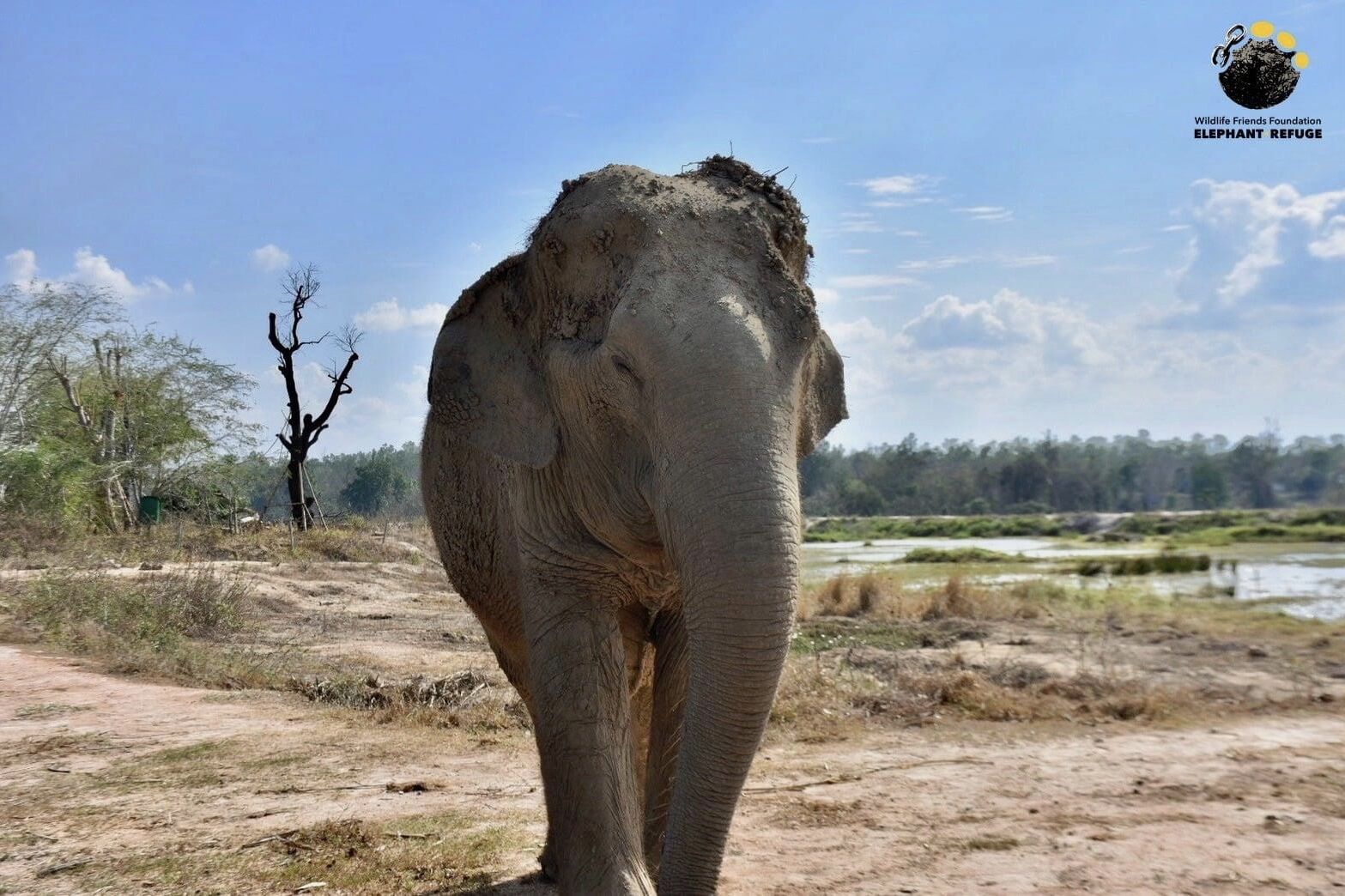
Location: 108 Tambon Thamairuak, Tha Yang District, Phetchaburi 76130
5) Phuket Elephant Sanctuary
Opening back in 2016, Phuket Elephant Sanctuary is a renowned refuge for retired and rescued elephants in Thailand. Endorsed by National Geographic, this sanctuary serves as a natural home for abused and overworked elephants from the tourism and logging industries. The haven is committed to the highest ethical standards, ensuring the elephants are nurtured in a safe and sustainable environment. Popular with tourists, the park offers visitors an opportunity to observe these peaceful animals in their habitat, educating them about the plight of Asian elephants.
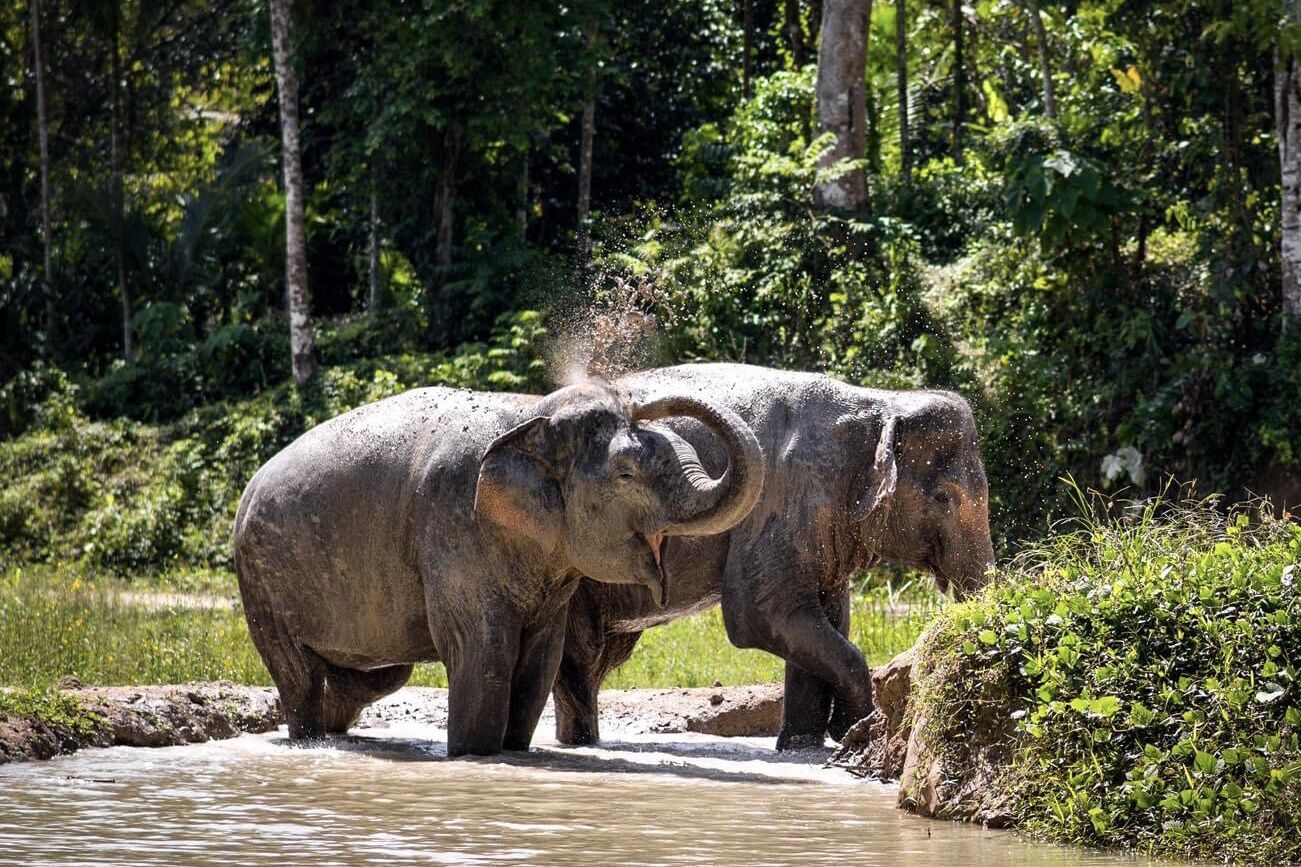
Location: 100, Moo 2, Paklok, Thalang, 83110
When you decide to explore sanctuaries known for their ethical treatment of elephants, you bring positivity to their natural settings while aiding in preservation efforts. As a traveler, your visit becomes meaningful if the sanctuaries you pick are committed to maintaining the dignity, safety, and overall health of Thailand’s amazing elephants.
Stay safe, happy travels, and have an ele-phantastic time!
Latest Thailand News
Follow The Thaiger on Google News:


























